Earth
Sign up for our newsletter
We summarize the week's scientific breakthroughs every Thursday.
-
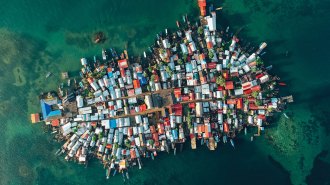 Climate
ClimateHow an Indigenous community in Panama is escaping rising seas
The Indigenous Guna peoples' relocation from Panama could offer lessons for other communities threatened by climate change.
-
 Climate
ClimateBaseball’s home run boom is due, in part, to climate change
Higher air temperatures led to an average of 58 more home runs each MLB season from 2010 to 2019, a study shows.
-
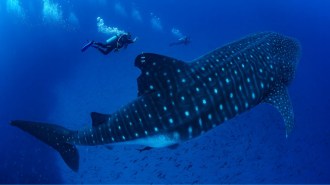 Oceans
Oceans‘Jet packs’ and ultrasounds could reveal secrets of pregnant whale sharks
Only one pregnant whale shark has ever been studied. New underwater techniques using ultrasound and blood tests could change that.
-
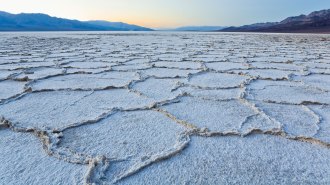 Math
MathHere’s why the geometric patterns in salt flats worldwide look so similar
New research suggests the shared geometry of salt flats from Death Valley to Iran comes from fluid flows underground.
-
 Health & Medicine
Health & MedicineMicroplastics are in our bodies. Here’s why we don’t know the health risks
Researchers are racing to try to understand how much humans are exposed and what levels are toxic.
-
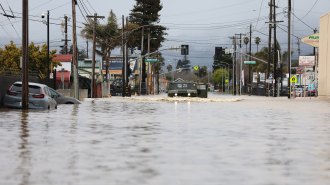 Climate
ClimateBy flying over atmospheric rivers, scientists aim to improve forecasts
Drenching atmospheric rivers are slamming the U.S. West Coast, bringing needed water but dangerous flooding. Here’s how scientists study these storms.
-
 Agriculture
AgricultureMartian soil may have all the nutrients rice needs
Experiments hint that in the future, we might be able to grow the staple food in the soils of the Red Planet.
By Nikk Ogasa -
 Oceans
Oceans50 years ago, researchers discovered a leak in Earth’s oceans
An analysis of oceanic rocks hinted that ocean water drains into Earth’s mantle. How much makes it back into the ocean remains unclear.
-
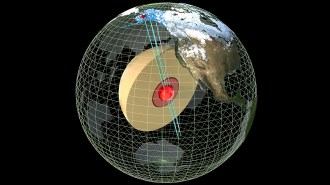 Earth
EarthEarth’s inner core may be more complex than researchers thought
Seismic waves suggest that Earth has a hidden heart, a distinct region within the solid part of the planet’s core.
-
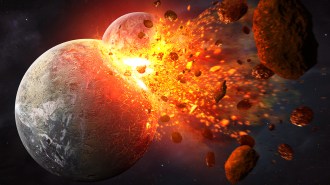 Earth
EarthA moon-forming cataclysm could have also triggered Earth’s plate tectonics
Deeply buried remnants of a hypothetical planet that slammed into Earth 4.5 billion years ago might have set subduction into motion.
By Nikk Ogasa -
 Agriculture
AgricultureDry farming could help agriculture in the western U.S. amid climate change
Some farmers in the western United States are forgoing irrigation, which can save on water and produce more flavorful fruits and vegetables.
-
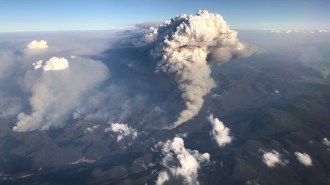 Climate
ClimateHow wildfires deplete the Earth’s ozone layer
Scientists detail the chain of chemical reactions that occur when wildfire smoke enters the stratosphere.